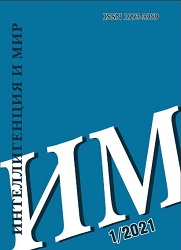Концепция гражданского правопорядка и свободы в поздней публицистике Г. Филдинга
The concept of civil order and freedom in late publicism in H. Filding
Author(s): Irina Marikovna ErlihsonSubject(s): Criminal Law, Civil Law, Social history, Novel, Criminology, 18th Century, Sociology of Law, British Literature
Published by: Ивановский государственный университет
Keywords: H. Fielding; D. Fielding; Great Britain; 18th century; Cicero; crime; justice of the peace; police;
Summary/Abstract: The author addresses the problem of power relations in the era of criminal justice reform, presented in historical narratives, taking into account the socio-cultural context and realities of Great Britain in the 18th century. The fight against crime during this period was haphazard in terms of both funding and organization. This, together with the critical attitude of various sections of British society regarding the use of militarized forces to maintain civil law and order, reduced the effectiveness of law enforcement mechanisms and, accordingly, led to an unprecedented increase in crime, which has become a popular area of public discourse. The subject of the analysis is the intellectual heritage of Henry Fielding, dating back to the turn of 1740—50, when the outstanding playwright and novelist served as Justice of the Peace of Westminster and Middlesex. The uniqueness of H. Fielding’s position is that his rich experience in the field of political journalism and jurisprudence allowed him not only to fight London crime, but to develop the ideological and conceptual foundations of British law enforcement practice. Application of special historical and source study methods (biographical, historical synthesis, discourse analysis, interpretation of texts and sources) to H. Fielding’s treatises that are little studied in Russian historiography (“Appeal to the Grand Jury”, “The True State of the Bosavern Penleza Case”, “Research into the causes of increased crime”). Allowed us to come to the following conclusion. Speaking from the position of an apologist for the British constitution, H. Fielding believed that it was the state that was the guarantor of civil law and order and argued for the need to create a state structure with a monopoly on the exercise of functions to control crim.
Journal: Интеллигенция и мир
- Issue Year: 2021
- Issue No: 1
- Page Range: 50-68
- Page Count: 19
- Language: Russian

